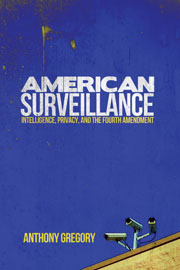President Obama signed a bipartisan bill on February 11 decreeing that analog television will remain until June. If you were unaware of the national conversion to digital TV, you’re not alone. “Backers of the delay feared that 20 million mostly poor, elderly, or rural households” were unprepared for the conversion, reports Reuters.
Nevertheless, by next week 681 stations will have abandoned analog, according to the Federal Communications Commission. The FCC might even forbid stations from meeting the very deadline originally set by the government.
In 2005, Bush signed the Digital Transition and Public Safety Act, setting the deadline for this February and appropriating $1.5 billion for digital-to-analog converter vouchers. Consumers would redeem the coupons at retailers certified by the National Telecommunications and Information Administration.
But Scott Wallstein of the Technology Policy Institute concludes that these vouchers have “created a floor on the price” on the converters. Certified retailers have no incentive to charge less than $40, the value of the coupons. Analyzing retail prices nationwide, Wallstein estimates that the vouchers have “increased the price of converter boxes by $21—$34.”
Moreover, the vouchers were first-come, first-served. They boosted converter sales but failed to prepare enough Americans for the original deadline. Many had never heard the news.
Coercive regulation supposedly enables large-scale coordination where the market would fail. But this national television conversion scheme reveals the limits of central planning.
Wilmington, North Carolina, was the guinea pig, going off analog last September. The FCC got 1,800 calls for assistance, including from hundreds who followed the instructions but got no signal. On a national scale this would spell chaos.
Denver’s mountainous terrain poses severe interference problems. Buffalo’s major stations use a high-power analog signal to cover large areas; after the switch many rural viewers would lose all broadcast programming. Digital signals have trouble reaching urban buildings and remote rural areas alike. A weak analog signal means a fuzzy picture. A weak digital signal means no picture or a flashing image. The stations and telecom companies have scrambled to adjust to the national timetable.
Most stations and viewers are ready. After investing in the conversion, some resent the delay. Congressman Joe Barton (R-TX) protested, “[N]o matter when you set the date—Feb. 17, June 12, July the Fourth, Valentine’s Day—there are going to be some people that aren’t ready.”
Universal digital television is a national priority, but any central plan will leave millions behind. Under FCC airwaves regulation, big players thrive and smaller competitors struggle. CBS, NBC, and ABC can easily continue broadcasting analog, while smaller networks can hardly afford obeying the capricious dictates of the FCC and Congress.
Why is the government involved anyway? Why not a more organic and regional transition?
The FCC grew out of the Federal Radio Commission created in 1927. Allegedly, the market had allocated airwaves poorly. In fact, a system based on property rights and homesteading already worked and was upheld in a 1926 Illinois case, Tribune Co. v. Oak Leaves Broadcasting Station.
In the 1920s, Commerce Secretary Herbert Hoover arbitrarily withheld broadcasting licenses. He was rebuffed in United States v. Zenith Radio Corps. He responded by assigning licenses indiscriminately—“a classic ‘tragedy of the commons,’” as economist Thomas Hazlett noted. Whereas the common-law allocation of spectrum worked, federal intervention created the radio chaos that supposedly warranted a new regulatory agency.
The FCC became a political tool, entrenching favored networks, punishing small ones, and censoring dissent. The agency propped up AT&T’s phone monopoly for many years, obstructed the rise of cable, and kept cell phones off the market for a decade.
With television going digital, federal regulators lose their classic rationale—the need to control limited spectrum. But don’t expect the feds to step away. What fails to serve consumers can still benefit politicians, regulators, and connected industry leaders.
In the Internet age, a national plan for universal digital TV is a clumsy anachronism. High picture quality, consumer availability, and liberty would be better served by a separation of television and state.








